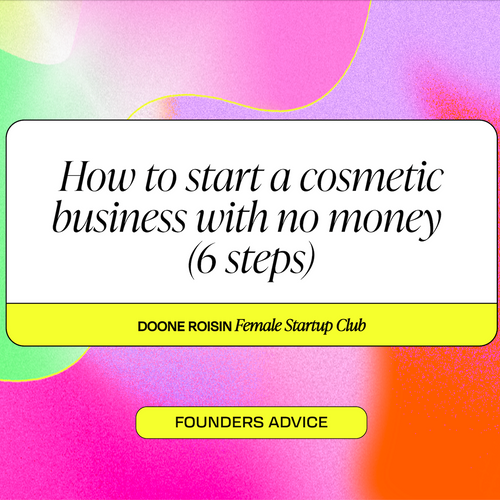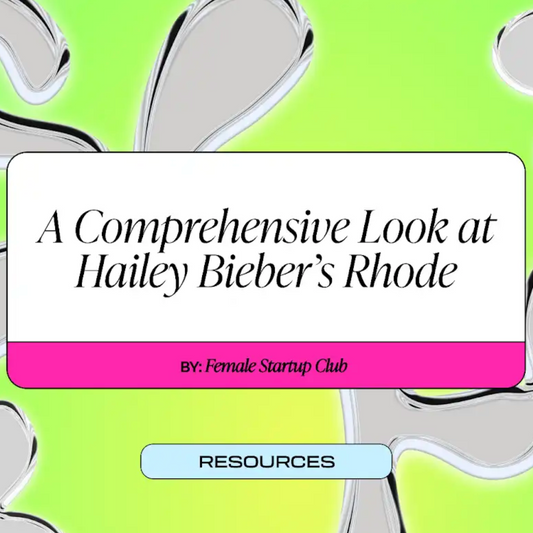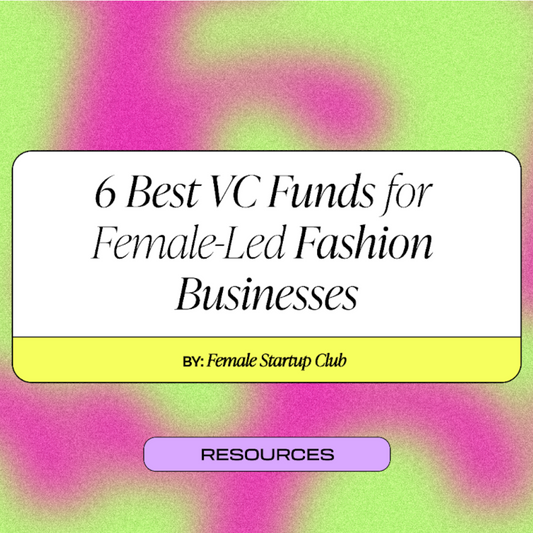Joining me on the show today is Alison Cayne, the founder of New York based biz Haven’s Kitchen.
Originally a cooking school that started out in 2012, Haven’s Kitchen is now helping cooks of all kinds in the kitchen with their ridiculously yummy looking, vibrant squeeze sauces.
I highly recommend jumping on the website to get a taste for what these delicious pouches look like. As soon as you see them I can guarantee you’ll want them in your life! I’m keeping faith that they’ll make their way to a wholefoods in London someday soon.
In this episode we’re covering Ali’s 8 year journey and so many lessons she’s learned along the way including the major moment she realised she would have to close down the best performing side of the business earlier this year due to the pandemic.

When it comes to female entrepreneurs shaking up the food world, Alison Cayne stands out. The New York-based founder of Haven’s Kitchen didn’t start off as a typical food industry insider. In fact, her journey into entrepreneurship began with a deeply personal mission: to create a space where cooking was more accessible, enjoyable, and less intimidating for everyday people. It’s a story about finding purpose in unexpected places and turning passion into a thriving business.
A Fresh Start: Turning Passion Into a Business
Before becoming the founder of Haven’s Kitchen, Alison Cayne was a mom of five, managing a busy household while finding time to pursue her own interests. She always loved cooking, but the real turning point came when she went back to school to study food systems. It was there that she saw firsthand the critical issues surrounding sustainability and our food industry, and she began dreaming about a place where people could learn to cook in a way that was not just about following recipes but understanding the bigger picture.
The idea for Haven’s Kitchen was born out of this passion for food education. It wasn’t about creating a restaurant or a traditional culinary school; it was about bridging the gap between home cooking and professional techniques. Alison wanted a space where people could walk in, learn to make a dish, and leave feeling more confident and excited about getting into the kitchen. The ultimate goal? To empower people to cook more and rely less on takeout.
Building Haven’s Kitchen: More Than Just a Cooking School
In 2012, Alison opened Haven’s Kitchen in New York’s Chelsea neighborhood, blending a cooking school, café, and event space all in one. The atmosphere was warm and welcoming, with classes designed for anyone from total beginners to seasoned home cooks who wanted to perfect their skills. From knife skills and pasta-making to global flavors and plant-based cooking, the diverse range of classes quickly drew attention.
Alison wasn’t just teaching cooking techniques, though; she was educating students about the origin of their ingredients and encouraging a sustainable approach to eating. She wanted people to understand where their food came from and how their choices impacted the environment. Haven’s Kitchen wasn’t just a place to learn—it was a community, a place where people could gather to share experiences and celebrate food together.
From Brick-and-Mortar to Grocery Store Shelves
Haven’s Kitchen wasn’t Alison’s endgame; it was just the beginning. The next big move came in 2018 when she launched a line of fresh, globally-inspired sauces to bring the flavors of Haven’s Kitchen into home kitchens across the country. Think: Thai Peanut, Chimichurri, and Herby Chimichurri—all freshly blended and packaged in squeezable pouches. It was the perfect way to make cooking at home more accessible without sacrificing quality or flavor.
These sauces became a hit, landing on the shelves of major retailers like Whole Foods, Sprouts, and FreshDirect. For Alison, this wasn’t just about scaling the business; it was about fulfilling Haven’s Kitchen’s original mission on a larger scale. She wanted to help people everywhere feel confident and excited about cooking at home, whether they had 30 minutes on a weeknight or were prepping for a dinner party.
Navigating Challenges and Embracing Growth
Running a business hasn’t been without its hurdles. From supply chain issues to shifting market trends, Alison has faced her share of challenges along the way. But with each obstacle, she’s learned to adapt and evolve—whether that meant refining the sauce recipes, expanding to new retail locations, or navigating the complexities of scaling a food business. One of the key lessons she shares? Stay true to your mission, even when it feels like things are getting off track.
She’s quick to acknowledge the importance of surrounding herself with the right team and advisors, who help steer Haven’s Kitchen in the right direction. It’s a piece of advice that resonates with any entrepreneur who understands the weight of making every decision alone. For Alison, building a strong community around the brand has always been part of its DNA—whether that’s through the supportive team, loyal customers, or fellow food entrepreneurs cheering each other on.
The Bigger Picture: Empowering Home Cooks
At the heart of Haven’s Kitchen is Alison’s belief that cooking is more than a skill—it’s a way to connect with others and with the world around us. It’s about finding joy in the process, even if you burn the first batch of cookies or accidentally overcook the pasta. It’s about learning, improving, and savoring the small victories along the way.
Alison didn’t start Haven’s Kitchen just to teach people how to make a perfect soufflé or master the art of bread-baking; she wanted to change how people think about cooking altogether. By making the process approachable and fun, she’s helped countless home cooks feel confident about stepping into the kitchen and making something from scratch.
What’s Next for Haven’s Kitchen?
As Haven’s Kitchen continues to grow, Alison remains committed to her original mission: empowering people to cook more and understand their food better. The sauces are expanding to more stores nationwide, and there are even whispers about new flavors on the horizon.
For Alison, it’s not just about growth for growth’s sake—it’s about continuing to find ways to make cooking accessible and fun, whether through classes, products, or sharing the stories of how everyday people are making magic in their kitchens. It’s a reminder that even in a world where convenience often wins, there’s still a place for home-cooked meals and the joy they bring.
Final Thoughts: A Recipe for Success
Alison Cayne’s story is one of finding purpose, embracing passion, and turning an idea into a flourishing business. It’s about more than just sauces or cooking classes; it’s about a movement that brings people closer to their food and each other. Through Haven’s Kitchen, Alison is proving that even if you don’t have a background in the culinary world, you can still make a big impact—one homemade meal at a time.



